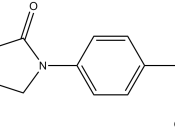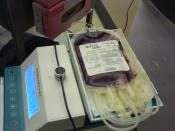Use of Anticoagulants in Prevention of Ischemic Stroke and Pulmonary Embolism
Sondus Kahil
Emily Isgur/ section 5
Abstract
The Journal article "Rivaroxaban as an Oral Anticoagulant for Stroke Prevention in Atrial Fibrillation" by Alexander GG Turpied discusses a new method for patients suffering from atrial fibrillation as a recommended form of treatment. Atrial fibrillation is the most prevalent form of cardiac arrhythmia in the developed world and is responsible for 15% of strokes that occur. Turpied summarizes this finding on the properties of Rivaroxban and found that it is a direct inhibitor of factor Xa furthermore concluding that is an appropriate method for anticoagulation therapy. According to produced clinical trials, Rivaroxban show significant reduction in bleeding when compared to Warfarin. The findings support recommendations to switch from vitamin K antagonist therapy to Rivaroxban.
The journal article "The Pharmacology and Pharmacodynamics of Novel Oral Anticoagulants" by Tracy DeWald and Richard discuss and summarize their findings on new oral anticoagulants drugs to replace traditional vitamin K antagonist.
This article revealed and summarized their findings on newer oral anticoagulants Dabigatran and Apixaban. Based on clinical trials they produce explanations as to why there are differences in bleeding outcomes of Vitamin K antagonists and Novel Oral anticoagulants. Less bleed may occur in the newer anticoagulants due to their direct inhibit activity of the clotting agent thrombin.
Introduction
Anticoagulants have been a long time mandatory therapy in patients suffering from occurring ischemic stroke due to coronary syndrome and atrial fibrillation [1]. Anticoagulant drug therapy is also mandatory forms of drug therapy in order to significalty improve morbidity and mortality in patients suffering from such cases [2]. Anticoagulants are known as drugs that prevent the action of clotting factors or platelets within the blood [3]. Clotting factors in the blood are most commonly seen in...


